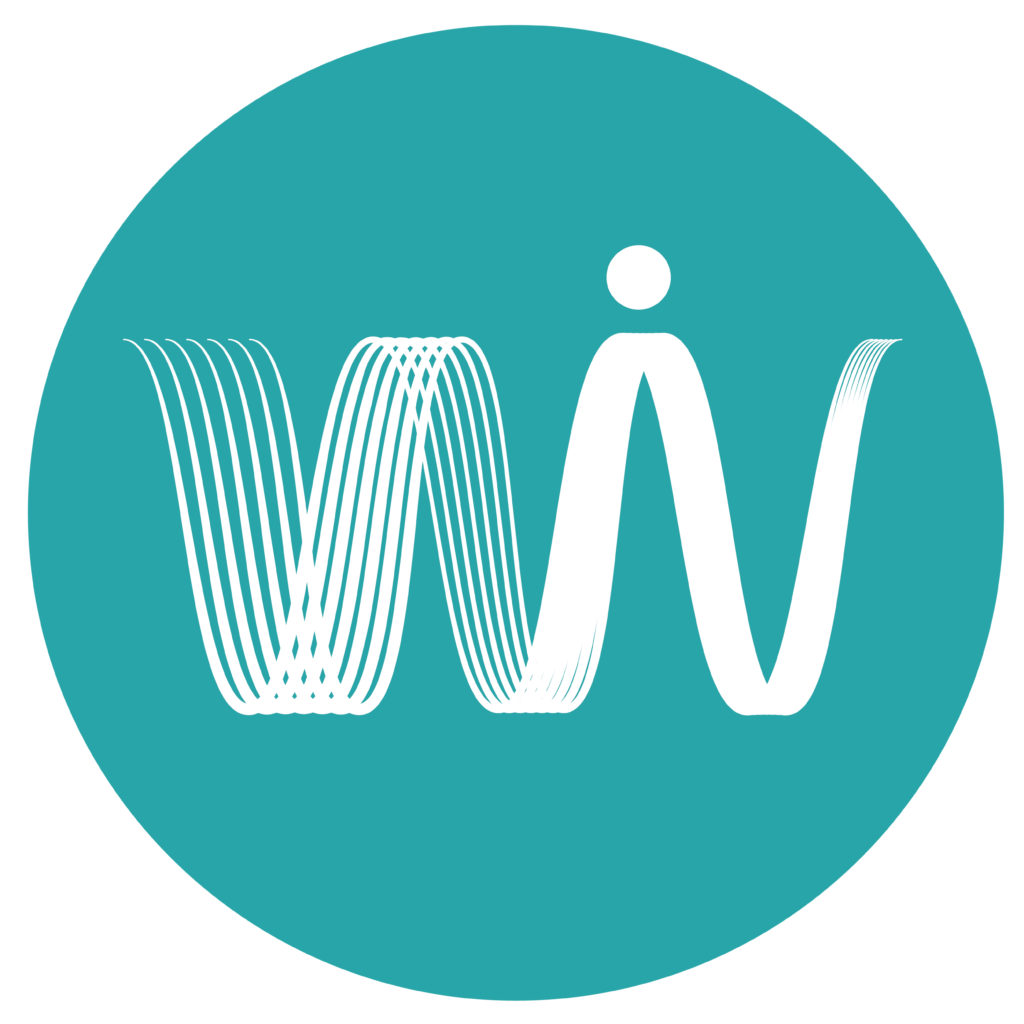I spoke with Dr. Joan Palmiter Bajorek about women and minorities in voice technology on the Sound in Marketing Podcast (Episodes 32 and 33). Joan is Head of Conversational Research at VERSA, part of the startup innovation arm of the company, and founder of Women In Voice, a female empowerment organization. Joan is a linguist and a researcher.
Celebrate Amplify Empower
When I first started my conversation with Joan, I expected the talk to go in a different direction. I expected us to talk about the wonders that are woman and how the woman’s voice is so much more important than the man’s voice. However, that’s not where it went and I couldn’t be more pleased.
It is NOT about the female voice. It is about ALL voices.
Dr. Bajorek
In order to get a truly cohesive story, we need to be able to hear from everyone. Whether you are male, female, black, white, old, young, stubborn, or sweet; all of us need to be heard. We need to lift each other up and help each other take the stage because without hearing from everyone we do not have the full perspective and none of us can truly succeed.
This is one of the best things about the voice community that I’ve discovered thus far. Everyone is so supportive of one another and excited to see one another succeed. With one person’s discovery comes more understanding of the voice technology industry as a whole and is than shared and utilized by all to continue creating an entire industry.
Learning From the Spiderweb
I believe that our world is a huge spider web of personalities and beliefs and ways of thinking. You can’t just look at the northwest side of the web to understand its design and pathways. It’s more intricate than that. You have to step back and see the whole web. One part is not more important than another because without all parts, it is not a full construction.
Representing Each Voice
How do we create more opportunities for all voices to be heard? The first step is just in knowing that there is a need for more diversity. Sometimes we don’t realize that the whole room is white or the whole room is male.
If we can acknowledge that the representation is lacking, then we are on the path to fixing the problem.
Dr. Bajorek
When we don’t see a representation of ourselves to “look up to”, it can be difficult to visualize ourselves as that persona that we’re striving towards.
Take the Oscars for example. When Bong Joon-ho accepted his awards, it wasn’t just him standing on stage accepting awards for his movie Parasite that “cleaned up” at the Oscars. He was representing future South Koreans that would and will follow in his footsteps.
This is not the same as looking at the demographics and saying “we need a woman representation here.” If there is no woman qualified or that fits into that situation at that time, finding some random woman to “fit that mold” will do nothing. We don’t want to have a representation of a woman just because they’re a woman. We want them because we agree that they are a fit.
So how do we get that diversification when we don’t have it? How do we get the females and minorities to apply to the jobs we want them to apply to and meet our demographic needs? Joan believes that if you are paying close enough attention, you can tell when people are being mindful of the demographic gap or not.
“It takes all of us in micro and macro situations. Did we go the extra mile? How are we shaping our ecosystem mindfully?”
We vote with our feet and we also vote with our time.
Dr. Bajorek
Women In Voice
Women In Voice was founded in 2018 to further a more realistic representation of people in technology. They now have 10 chapters all over the world with plenty more in beta.
Bob Stolzberg of VoiceXP is a big fan of the organization. In a previous episode, he spoke about how he felt that women were better storytellers and that it just made sense to have female voices as primary to the industry.
Joan’s opinion was “maybe, maybe not”. She believes, as I do, that the common opinion that “all boys are better at math and all girls are better at being pretty” are thoughts that need to be shut down. “I’m extremely excited about a world where we don’t think about the narrative this way. Diversity builds better projects that disrupts the new narrative.”
I learned a new word during our conversation that I’ll be digging into more on my own. Intersectional feminism is, “the intersection one comes from and the privilege they bring to the room”. It brings the roughness of the word feminism down to a level of common sense.
Someone has a story that they are seeing and telling from one angle, and they are joining their perspective to another location that sees and tells the story slightly differently. THIS is how we see and tell the FULL story.
Dr. Bajorek
Startup Funding
Less than 3% of startup funding goes to women-led startups. Although growth is happening, this is an extremely low percentage. How can we make women-led startup funding opportunities more of a priority? Female Founders Alliance is one organization that is working hard in this space.
At events through Founders Live, Joan has experienced some inspiring women pitching their products and companies. “They are so confident and prepared that it is deeply impressive watching them trailblazing”.
The talent pool is undeniable.
Some of the Problems
Joan and I discussed some of the reasons why women and other minorities are still under the curve in progression of their businesses and representation.
The simple act of projecting a more welcoming environment can help to draw in different demographics and representation. If someone can’t “see” themselves in a space, it is very hard to join it.
There are a lot of self-sacrificers. People that support others and put themselves on the sidelines. I know personally, I am guilty of this. Both women and men alike need to help curb these self sabotaging habits. We need to let the self sacrificers know that it’s OK to be “selfish” sometimes and encourage one another in exploration of gifts and ambitions.
These “problems” are not necessarily limited to women. It could just be the ONE person that didn’t speak up. His or her perspective needs to be voiced out loud simply because it isn’t being heard.
We, as a society, are socialized to listen and be patient. What we need to be focusing on is celebrating one another, amplifying and uniting our voices, and empowering each other so we can hear all voices alike.
Dr. Bajorek
Instigate For Change
If I don’t do this will anything change? We can’t sit back; we need to assist. If structurally we are not representing or supporting equal representation, then what happens? We need to change the default norms.
The role of allies is crucial and takes all forms. According to Joan, men (especially in Madrid and London) have been stepping up to support monetarily and otherwise in Women In Voice. They are currently discussing and exploring what the role of allyship is.
It’s About A Dialogue
We may not have an answer to all the questions that Joan and I discussed and that’s OK. As long as we’re asking the questions in the first place. We need to be listening and paying attention and trying to instigate change in order to move forward. Little by little, we will all find our voice. It is important to continue to lift each other up and encourage one another to continue to step forward and be heard.
Voice Technology Today
Joan wrote an article about her takeaways from Voice CES earlier this year. In it, she discussed how Google had a huge presence there. As voice tech has progressed over the last few years, Amazon has been much more actively present. However, Joan feels that Google has been busy digging into deep strategy while Amazon has been more “fly on the wall- let’s try something and see if it sticks.” So we’ll be seeing more of the behemoth in months and years to come in the voice community.
She went on to say that hardware and software will both be on board with voice first technology soon. Presently, hardware conferences haven’t fully adopted voice tech. It’s been left to the software companies. Joan believes that that will change soon and I tend to agree.
Another great article to check out was Joan’s article in the Harvard Business Journal. Speech Recognition Still Has Significant Gender Bias. It talks about the Google API and the differences and breakdowns of the quality of our accuracy. What is lacking? What needs to be done?
This poses a real question. How do we get our data? What are we basing our models on? How can we get quality data in and quality data out? Now is the time to advocate for answers to those questions. The ethics and regulation for voice first technology have yet to be defined. It is up to us to speak up and express what factors need to be included.
Joan has found that her talks on data bias are not very popular. The key words are in cost cutting. However, bias talks affect purchasing power so we need to stop ignoring the conversation. It is important.
The human/computer interaction is radically changing and we get to potentially be on the build side in pushing our world forward in that respect.
Dr. Bajorek
Wrapping Up
We may still have miles to go in understanding how to best use and read the data of voice first technology but everything has to start somewhere. Just look at smartphones and the iPod. They were most definitely faulty and imperfect in the beginning. Voice technology is relevant and will become more and more relevant as the years and months go by. The sky’s the limit.
There are also so many rolls and skill sets that are popping up daily and go across the massive sound landscape. Positions in the voice industry are actively being built up in real time. For example, job alerts for podcast editors were almost non existent 3 months ago. Whenever I’d google “podcast editor”, I’d get video editor or something to that effect. Podcast was never in the mix.
It is now.


